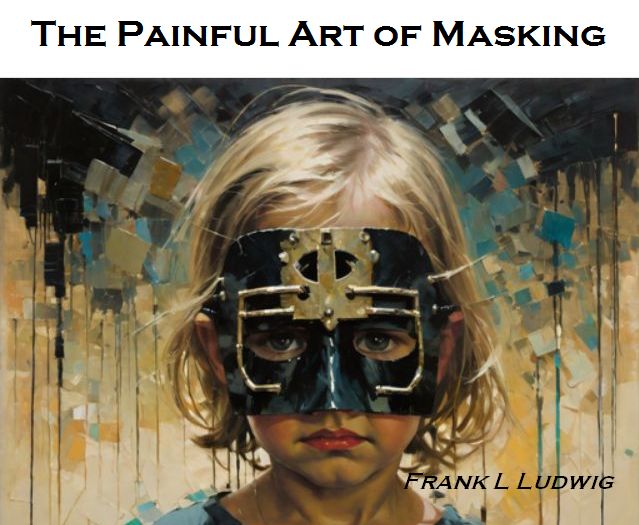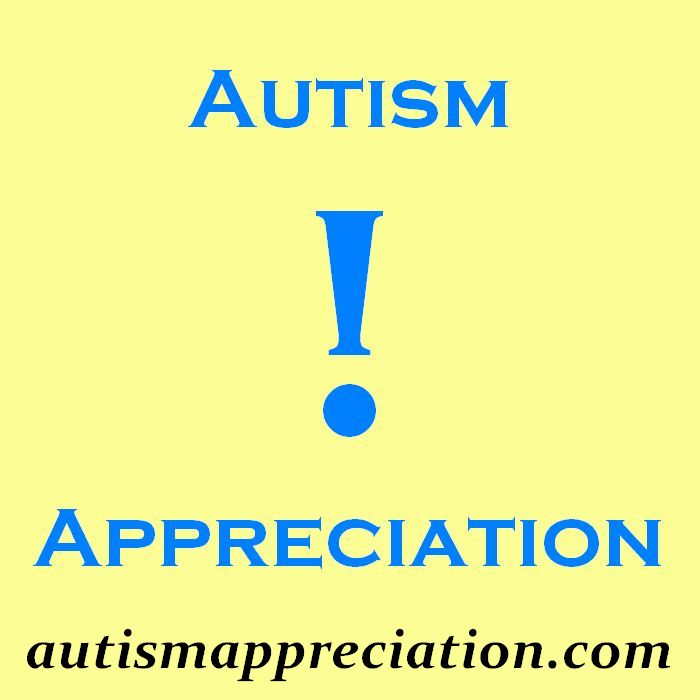
Read more on
|
Tweet
|
Almost all societies only grant acceptance to people who, through the process of social conditioning, acquire conformity and compliance, the two pillars of collective identities. This means we live in a world in which the ability to fulfil the social expectations of others is far more important than any other qualities such as competence, skill, expertise, creativity and experience, let alone rationality, common sense, objectivity, compassion and incorruptibility. For this reason people who tend to retain their individual identities, i.e. autistic people, are subjected to social repercussions like ostracisation and discrimination which often causes them to temporarily suppress their identities and take on the collective identities of those around them by copying their behaviours and opinions and unquestioningly obeying authority figures in an attempt to achieve at least some level of acceptance. This coping mechanism is known as masking and occurs mainly in formal (and therefore extremely stressful) settings such as school, workplace and church.
Suppressing our identities for prolonged periods of time is exhausting by draining our mental and even physical energy. Therefore many autistic children returning after a taxing school day need to let off steam while others (as I did myself) require sufficient time on their own to recuperate.
Masking is practically self-prescribed ABA, and just like ABA and other behavioural 'therapies', long-term masking more often than not leads to serious mental and physical health issues such as PTSD, OCD, gastrointestinal problems, depression, autistic burnout, self-harming behaviour and suicidality, to mention but a few. And like ABA, masking can also cause the child to destroy their intellectual potential by internalising the notion that their way of thinking is 'wrong' and make them vulnerable to abuse by forcing themselves to unquestioningly obey those in authority.
A particularly fitting description of masking is Hans Christian Andersen's fairytale The Shadow. It tells the story of a luckless learned man whose shadow separates from him and goes his own way. Years later he returns to the man in fully human form, boasts about how prosperous he has become and provides for the man under the condition that they swap places in public where the shadow introduces the declining learned man as his shadow. The shadow continues to prosper and eventually marries a princess while he has the learned man executed.
The protagonist remained unsuccessful while his masking alter ego was rewarded with fame and fortune. Thatís why he eventually gave up his identity entirely to completely merge into the other persona. A third persona is mentioned in passing, a second shadow that appeared after his original shadow left him. It plays no further part in the story and represents the passive persona which stays in the background and tries not to draw attention.
Having been bullied by classmates and teachers throughout secondary school had taught me the need to mask, and afterwards I followed a career my parents had forced upon me (and which I had absolutely no interest in) over my own career choice of working in childcare. At the age of 25 I suffered autistic burnout which was treated as depression at that time. I then decided to live my own life, got my childcare diploma and became a much happier (albeit still struggling) person. This was my first main act of unmasking.
At the age of 49 I realised I'm autistic (and got diagnosed the following year) and became aware of many behaviours that I had employed merely to keep others happy though I felt uncomfortable with them, such as making small talk and answering the phone, and that made me appear 'almost normal', as somebody put it. Dropping these behaviours concluded the process of unmasking. (You can read more in my autobiographical article Growing Up Autistically.)
Autistic people mask because they feel they aren't free to be and express themselves. The more accepting the environment becomes, the less the autistic person will be tempted to mask.
I'll finish with a masking poem from my autism collection:
The Etruscan Mask
Unpopular and shunned by many,
he finally took on the task
of hiding his self to please the others
and borrowed an Etruscan mask.
Since then society accepted
him and rewarded his display,
and the Etruscan mask has made him
the person that he is today.
Sometimes when looking in the mirror,
he deeply ruminates on how
the mask has changed his life and wonders
what his own face would look like now.